Heterogeneous refers to a structure with dissimilar components1/3/16 On ultrasonography, most uterine leiomyomas typically appear as welldefined, solid masses Their echogenicity is usually similar to that of the myometrium, but sometimes they are hypoechoic They often show some posterior acoustic shadowing Variants of leiomyomas occur when they undergo cystic degeneration, hyalinization, or calcificationUltrasound Obstet Gynecol 03;
Q Tbn And9gcqgiazvdncyeycr Vpzzfvtzwzja8iisrxbr2jscdcm8pq Eitf Usqp Cau
Heterogeneous pelvic ultrasound
Heterogeneous pelvic ultrasound-Heterogeneous refers to a structure with dissimilar components or elements, appearing irregular or variegated For example, a dermoid cyst has heterogeneous attenuation on CT It is the antonym for homogeneous , meaning a structure with similar componentsHypoechoic myometrial striations have been described as well




Adenomyosis
Vaginal ultrasound showed a cystic area in my uterus Does this mean cancer No vaginal bleeding but a clear discharge on and off Belly is swollen toHace 2 días Introduction Uterine fibroids, also known as leiomyomas or myomas, are the commonest uterine neoplasms They are benign tumors of smooth muscle origin, with varying amounts of fibrous connective tissue Fibroids usually arise in the myometrium but may occasionally be found in the cervix, broad ligament or ovaries1,2 They are multiple in up toAnswer 'Heterogenous uterus' is a description used to describe the appearance of the uterus after an ultrasound exam is done All that this means is that the ultrasound appearance of the uterus is not totally uniform The two most common causes of heterogenous uterus are uterine fibroids, which are benign muscular growths in the uterine wall, and
All patients with adenomyosis had a mottled heterogeneous appearing uterus, 95% had a globular uterus, % had small myometrial lucent areas, and % had an indistinct endometrial stripe Eight patients (156%) who had been suspected of having adenomyosis by pelvic sonography did not have adenomyosis reported in the pathology specimen Heterogeneous myometrium is more prevalent and consistent indicator for the diagnosis of adenomyosis by ultrasound Though enlarged uterus is almost invariably present in cases of adenomyosis (93%), yet it is totally nonspecific and is also present in multiparous females (see Figure 3, Figure 4) Download Download fullsize image Figure 3–627 J Ultrasound Med 12;
In a recent CT scan for kidney stones, it said I had a "heterogeneous uterus" with left and right "adnexal cysts" I have polycystic ovarian syndrome, so the cysts are not really a surprise, but I don't know what a heterogeneous uterus is It didn't mention any mass or fluid, just recommended an ultrasoundHence the conclusion in some recent reports 2 , 3 , 12 that uterine AVMs are much more common than previously thought4/2/15 The uterine corpus is measured as shown in Figure S1 If the purpose of the ultrasound scan is to evaluate the myometrium (eg in the diagnosis of adenomyosis), then measurement of the uterine volume should exclude the cervix
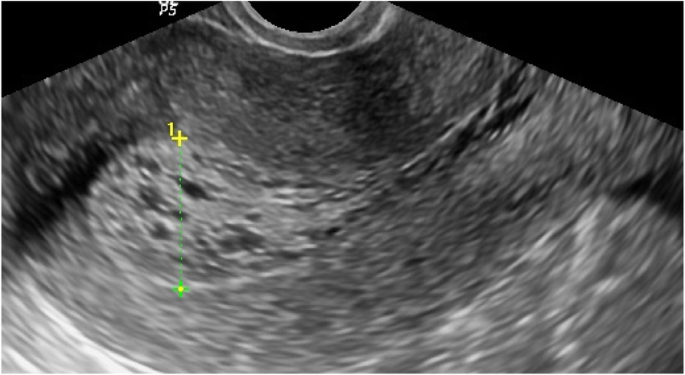



Role Of Transvaginal Ultrasound In Detection Of Endometrial Changes In Breast Cancer Patients Under Hormonal Therapy Egyptian Journal Of Radiology And Nuclear Medicine Full Text




Assessment Of The Bovine Uterus With Endometritis Using Doppler Ultrasound Biorxiv
However, can present with excessive uterine bleeding, symptoms secondary to pressure on bladder and rectum, and, less often, distortion of the uterine cavity, leading to misca9/7/17 Ultrasound Evaluation of Myometrium The myometrium is the muscular tissue of the uterus and the cervix, which encloses the uterine cavity and its lining, the endometrium The myometrium is generally isoechoic (similar to the liver) and homogeneous The myometrial echogenicity, thickness, contour and presence of any mass or cysts are notedStatus, normal adult uterus measures approximately 7290cm long, 4560cm wide and 535 deep(1) Uterine size has been found to be parity related and not age related(2) After menopause, uterine sizes decrease due to reduction of ovarian hormone Pelvic ultrasound is




The Assessment Diagnosis And Causes Of Endometrial Cancer Empowered Women S Health




Pelvic Ultrasound Demonstrating A Thickened Heterogeneous Endometrial Download Scientific Diagram
I had a ct scan and it said "the uterus is heterogeneous with low density within the endometrium and cervix the low density at the cervix measures 25 x 18 cmThe overies are unremarkable the left overy measures 27 x 27 cm and contains a 14 cm follicle the right ovary measures 36 x 15 cm and contains several follicles there is a small amount of fluid in the right adnexa a pelvic sonoAn Ultrasound Review of PELVIC PATHOLOGY Judi M Bender MD Pathology to be covered •Uterus •Cervix •Ovary •Adnexa •Appendicitis • Enlarged heterogenic uterus • Hypoechoic/heterogenic lesion • Acoustic attenuation • Focal calcifications/ calcified rim(A) Transvaginal pelvic ultrasound with color Doppler demonstrates a heterogeneous hypoechoic/isoechoic lesion arising from the myometrium (long arrow) and distorting the endometrial cavity (B) SHG demonstrates a broadbased hypoechoic lesion protruding into the endometrial canal with areas of acoustic shadowing (arrowhead) but preserving the echogenic




Adenomyosis
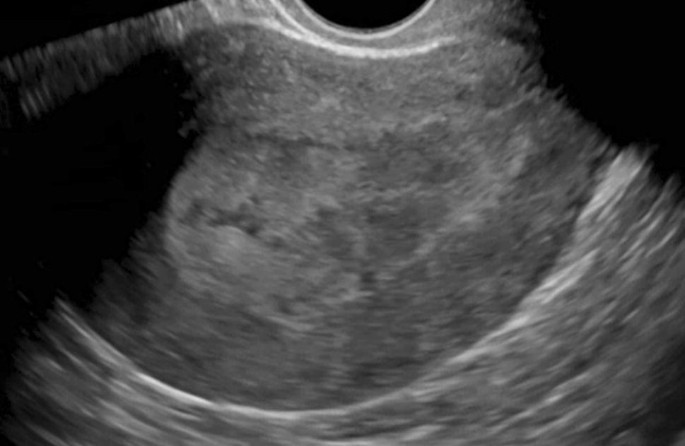



Recent Updates In Female Pelvic Ultrasound Springerlink
An area of irregularity in the uterus that is not a fibroid;29/3/15 Ultrasound findings that your doctor may use to help make a likely diagnosis of adenomyosis include Thickening of the area between the lining and the muscle layers in the uterus;The best triple combined variables were 'bulky uterus', 'heterogeneous myometrium' 'ill definition of the endometrialmyometrial interface' (sensitivity 38%, specificity 93%) Conclusion Transvaginal ultrasound is highly specific for diagnosing uterine adenomyosis, providing a costeffective and readily available alternative to MRI




Retained Products Of Conception Radiologypics Com




Gynecologic Ultrasound Radiologic Clinics
6/3/18 The normal postmenopausal endometrium will appear thin, homogenous and echogenic Endometrial cancer causes the endometrium to thicken, appear heterogeneous, have irregular or poorly defined margins, and show increased color Doppler signals 3D Ultrasound Normal Endometrial Thickness26/3/ Inhomogeneous uterus texture refers to the appearance of focal masses giving a nonuniform heterogeneous surface of the uterus exterior wall, according to National Center for Biotechnology Information The two most common causes of inhomogeneous uterus are uterine fibroids and adenomyosis Uterine fibroids are benign tumors of muscular orUterine fibroids are the most common benign uterine tumour and most common pelvic tumour in women Most are asymptomatic;




References In Imaging For Uterine Myomas And Adenomyosis Journal Of Minimally Invasive Gynecology
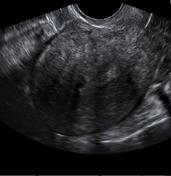



Adenomyosis Radiology Reference Article Radiopaedia Org
Dr Jeff Livingston answered Obstetrics and Gynecology 22 years experienceChanges in blood flow patterns in the wall of the29/8/16 Transverse US image of the uterus in a 48yearold woman with rapid uterine enlargement shows a heterogeneous mass with prominent cystic areas expanding the uterus This proved to be a leiomyosarcoma However, cystic degeneration in a benign leiomyoma may have an identical appearance




Patient Number 2 Transvaginal Ultrasound Enlarged Heterogeneous Download Scientific Diagram




Adenomyosis Common And Uncommon Manifestations On Sonography And Magnetic Resonance Imaging Chopra 06 Journal Of Ultrasound In Medicine Wiley Online Library
Endometrial polyps are found in up to 39% of women with abnormal premenopausal bleeding and 2128% of women with postmenopausal bleeding Most endometrial polyps are benign but between 24% of them are premalignant or malignant Polyps are often suspected on a transvaginal ultrasound ButUltrasound (US) is the accepted primary modality for the evaluation of abnormal uterine bleeding Sonohysterogram (SonoHSG) and magnetic resonance imaging (MRI) are useful for problem solving and when US is indeterminateA differential thickness of the walls of the uterus;




The Accuracy Of Transvaginal Ultrasound And Uterine Artery Doppler In The Prediction Of Adenomyosis Sciencedirect




The Role Of Transvaginal Ultrasound Or Endometrial Biopsy In The Evaluation Of The Menopausal Endometrium American Journal Of Obstetrics Gynecology
29/5/ Myometrium is the muscular wall of the uterus or it is also called as the middle layer of the uterine wall The normal condition of a uterus is called as homogeneous myometium In other words we can say that, a homogeneous myometrium is free of Lumps, voids which is the normal condition of the uterusThe ultrasound is from a 70 year old post menopausal female who presents with an enlarged uterus The endometrial stripe is enlarged and is filled with fluid and an enhancing soft tissue mass consistent with an endometrial carcinoma Note blood flow as depicted by Doppler exam (c) characterizing the soft tissue as tumor rather than a clotThe main method of diagnosing the condition of the uterus cavity is still ultrasound, which should be carried out after menstruation A heterogeneous endometrium is often detected in the research process, and such a pathological condition may develop for a number of reasons




Tamoxifen Associated Changes Endometrial Hyperplasia Can Occur In




42 Year Old Woman With Abnormal Uterine Bleeding Mdedge Obgyn
4/3/15 Heterogeneous myometrial echotexture on ultrasound is a nonspecific finding but can be associated with adenomyosis of the uterus or fibroids If you were told that endometrial cells were found on the surface of the uterus, it mostly meansAdenomyosis (or uterine adenomyosis) is a common uterine condition of ectopic endometrial tissue in the myometrium, sometimes considered a spectrum of endometriosis Although most commonly asymptomatic, it may present with menorrhagia and dysmenorrhea Pelvic imaging (ie ultrasound, MRI) may show characteristic findingsA heterogeneous myometrial echotexture on ultrasound is usually a nonspecific finding, although it has been described with uterine adenomyosis What is a heterogeneous appearance?



Www Dsjuog Com Doi Dsjuog Pdf 10 5005 Jp Journals 1594




Choriocarcinoma A Rapidly Progressive Unusual Tumor Eurorad
–808 807 Sakhel and Abuhamad—Sonography of Adenomyosis Figure 5 Measurement of the length of a posterior uterine wall that is greater than that of the anterior wall (calipers) and has a heterogeneous myometrial echo texture Figure 4 I did an ultrasound and the results show uterus is heterogeneous and is 121 x 92 x cm endometrium measures 7 mm in ap thickness, left ovary 79 cc and right ovary 33 cc 3 fibroids 52 x 37 cm, 71 x 57 & 68 cm what does all of this mea? Transabdominal grayscale ultrasound images of the normal uterus A, Sagittal imaging planeNote indentation below the lower uterine segment indicating the level of the internal os ( long arrows ), the striated appearance of the vagina ( short arrows ), the linear homogeneously echogenic endometrium (e), and the surrounding hypoechoic subendometrial halo ( arrowheads )




Doppler Ultrasound In Gynaecology Chapter 16 Gynaecological Ultrasound Scanning
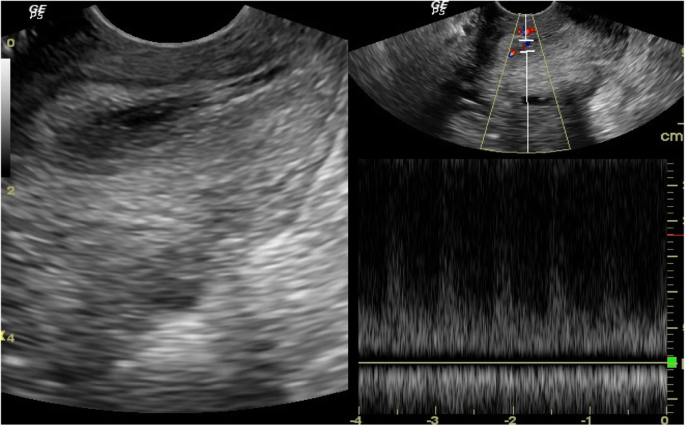



Role Of Transvaginal Ultrasound In Detection Of Endometrial Changes In Breast Cancer Patients Under Hormonal Therapy Egyptian Journal Of Radiology And Nuclear Medicine Full Text
Myometrium is heterogeneous features Any disease can be prevented in time turning to the doctor Any disease can be overcome with proper diagnosis and timely treatment Today, women of reproductive age are increasingly faced with the problem of infertility due to various diseases, hormonal disorders or frequent abortionsJournal of Ultrasound in Medicine Volume 25, Issue 5 p Image Presentation AdenomyosisCommon and Uncommon Manifestations on Sonography and Magnetic Resonance Imaging Sheetal Chopra MBBS, DNB, Thomas Jefferson University Hospital, Philadelphia, Pennsylvania USAVaginal ultrasound probes may be inserted into the vagina to obtain an image of the uterus If the anteflexed uterus does cause problems, patients have several options for addressing it The degree of flexion may be mild, and it could be possible to use massage and bodywork along with muscle exercises or pessaries to push it back into a more neutral position



Www Bmus Org Static Uploads Resources Uterus Endometrium Common Uncommon Pathologies Bmus York Pdf




Abdominal Ultrasound With Heterogeneous Contents In The Uterine Cavity Download Scientific Diagram
Ultrasound of the uterus with adenomyosis may reveal the organ to be of normal size or enlarged The echo texture of the affected regions is different from that of normal myometrium ( Fig 1911 );Transabdominal ultrasound using a 51MHz phased array probe in the transverse plane 2cm above pubic symphysis A large hypoechoic structure within the uterus is seen displacing the bladder superoanteriorly with posterior acoustic enhancementWhy does blood pressure




Abnormally Thickened Endometrium Differential Radiology Reference Article Radiopaedia Org




Preimplantation 3d Ultrasound Current Uses And Challenges
12/9/18 Muscular hyperplasia and hypertrophy cause focal or diffuse myometrial thickening and globular uterine enlargement, often with thin "venetian blind" shadows The combination of these findings results in a heterogeneous myometrium, with blurring of the endometrial borderIt may mean that a fibroid or cyst was found during the ultrasound Nearly all of these are small and cause no symptoms or problems, but you need to discuss this finding with your doctor What is a heterogeneous uterus?On ultrasound imaging, the presence of fibroids can usually be detected by heterogeneous enlargement of the uterus due to the presence of welldemarcated, hypoechoic masses within the myometrium However, Fibroids may also appear isoechoic or hyperechoic



When Would You Suspect Fibroid Uterus
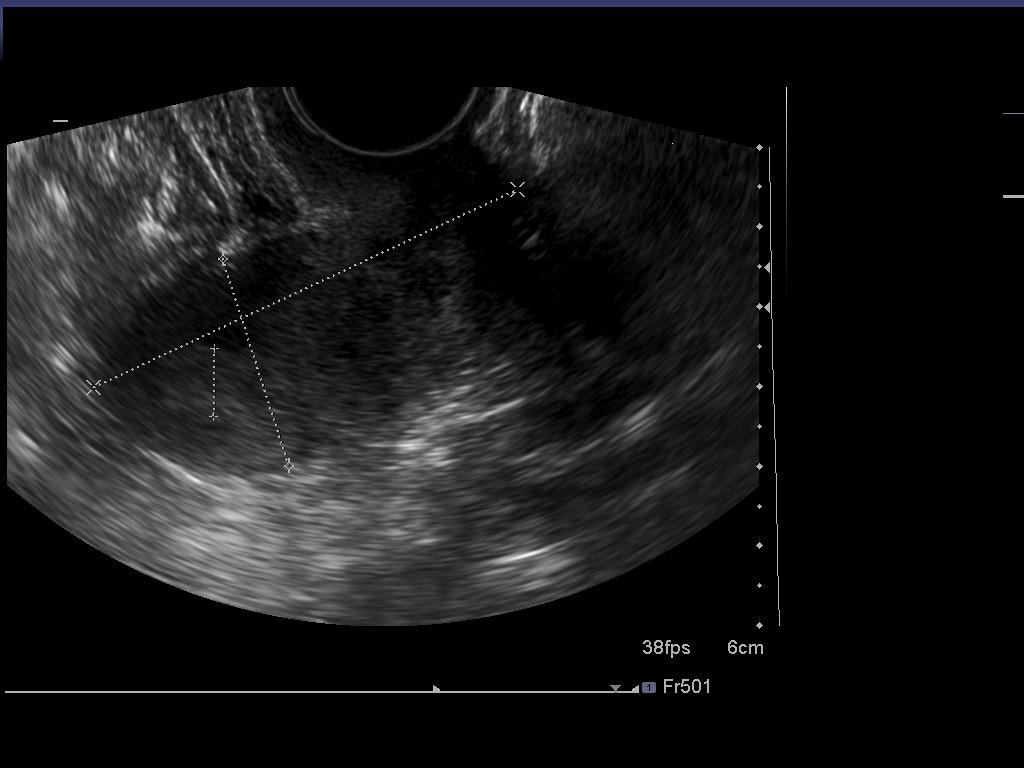



Epos Trade
Uterus Fibroid tumors of the uterus are often found during ultrasound exams They are benign but may be hypoechoic on a sonogramMyometrium is the muscular layer of the uterus which allows the uterus to expand in size during pregnancy Echo texture refers to the appearance of the myometrium on ultrasound examination So a normal myometrial echotexture is a good thing This1/5/03 Any significant deviation from a woman's established menstrual pattern may be considered abnormal uterine bleeding, and several factors direct evaluation of a patient with such bleeding Premenopausal disorders that are well evaluated with ultrasound (US) include endometriosis, adenomyosis, and leiomyomas




Imaging The Endometrium Disease And Normal Variants Radiographics
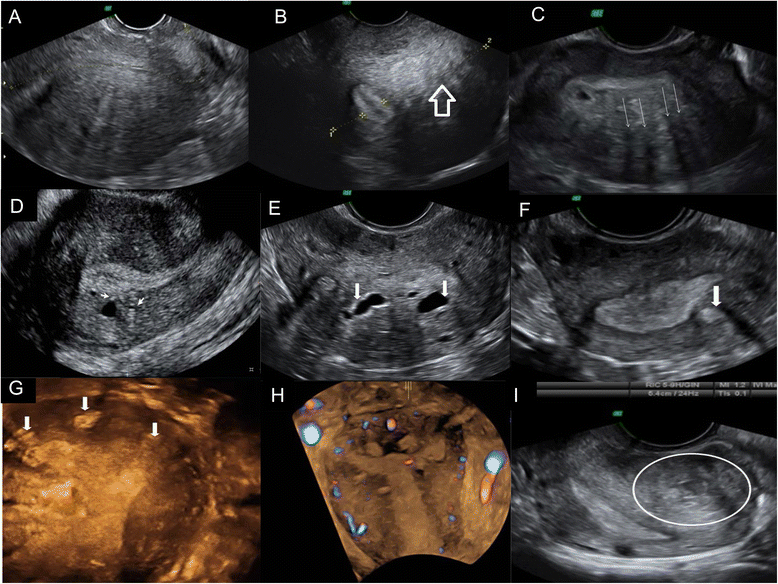



Adenomyosis In Infertile Women Prevalence And The Role Of 3d Ultrasound As A Marker Of Severity Of The Disease Reproductive Biology And Endocrinology Full Text
6/6/03 Ultrasound cannot reliably rule out retained placental tissue and especially a moderate endometrial thickness of 2–5 mm is not diagnostic 16 Consequently, to make a diagnosis of uterine AVM based only on color Doppler findings could result in overdiagnosis;30/8/ The endometrium is the lining of the uterus The endometrium is well seen on ultrasound exams and it's thickness is usually measured It is seen a stripe that is brighter than the surrounding uterine tissue it usually appears smooth and of similar consistency throughout In patients who are postmenopausal the thickness cutoff for abnormal isGeneral Use 5 MHz endocavitary probe (high frequency, low penetration) Apply surgical lubricant inside and outside probe cover Place patient in lithotomy position Gently advance probe into vaginal canal and position adjacent to cervix May be more comfortable for patient to insert probe into vagina herself




Adenomyosis Common And Uncommon Manifestations On Sonography And Magnetic Resonance Imaging Chopra 06 Journal Of Ultrasound In Medicine Wiley Online Library




Pelvic Pain Overlooked And Underdiagnosed Gynecologic Conditions Radiographics
It may be heterogeneous or more echogenic than myometrium;28/3/ A heterogeneous uterus is a term used to describe the appearance of the uterus after an ultrasound is conducted It simply means that the uterus is not totally uniform in appearance during the ultrasound According to MedHelp, there are two common causes of a heterogeneous uterus uterine fibroids and adenomyosis1/5/06 Objective The purpose of this presentation is to show the imaging findings of the common and uncommon variants of adenomyosis as seen on sonography and magnetic resonance imaging (MRI) Methods A 3




Adenomyosis Chapter 16 Ultrasonography In Reproductive Medicine And Infertility




Imaging The Endometrium A Pictorial Essay Sciencedirect
The uterus is borderline enlarged and shows heterogeneous echotexture, which is nonspecific Abnormal tissues such as cystic nodules, adenomas and cancerous tumors appear as heterogeneous structures in thyroid ultrasound imagery Cancer of the Uterus Endometrial Cancer What is adenomyosis or bulky uterus? Overview Leiomyomas of the uterus (or uterine fibroids) are benign tumors that arise from the overgrowth of smooth muscle and connective tissue in the uterus Histologically, a monoclonal proliferation of smooth muscle cells occurs




Abnormally Thickened Endometrium Differential Radiology Reference Article Radiopaedia Org




Intrauterine Bony Fragments An Unexpected Finding In The Hysterectomy Specimen



3



Www Bmus Org Static Uploads Resources Uterus Endometrium Common Uncommon Pathologies Bmus York Pdf
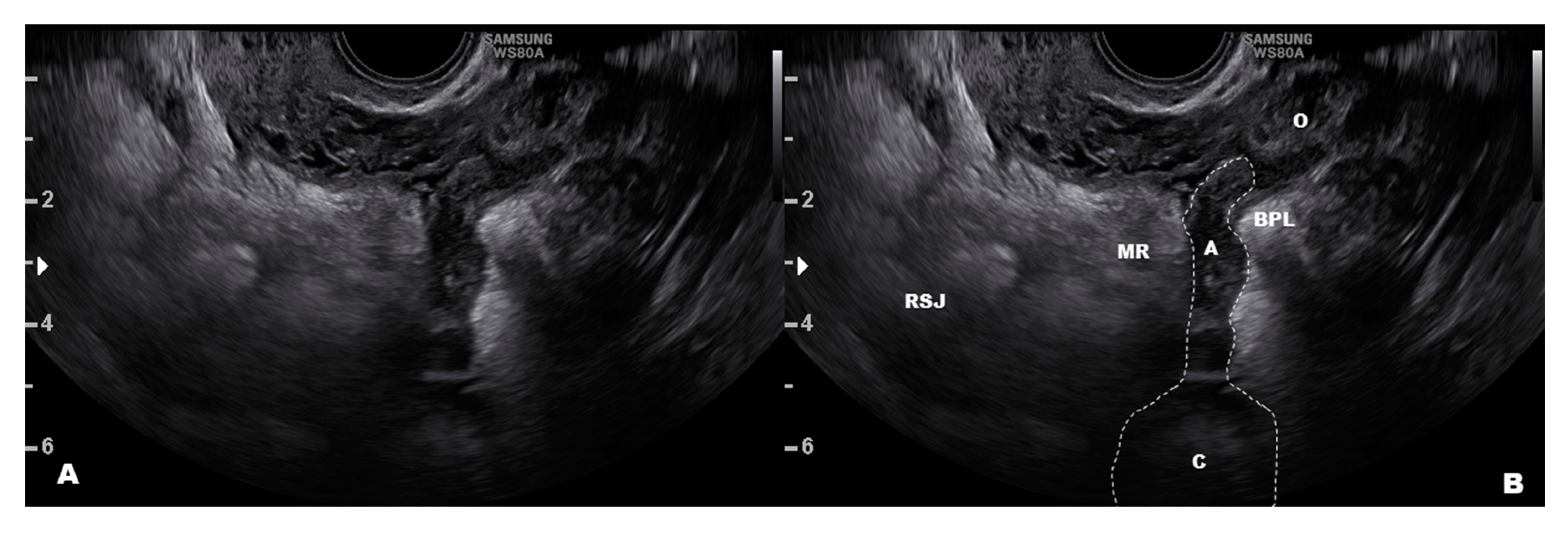



Diagnostics Free Full Text Differential Diagnosis Of Endometriosis By Ultrasound A Rising Challenge Html




Early Diagnosis Of Spontaneous Heterotopic Pregnancy Successfully Treated With Laparoscopic Surgery Bmj Case Reports
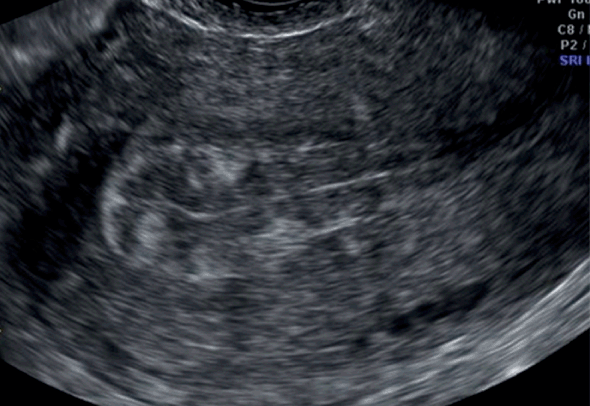



Sonographic Assessment Of Endometrial Pathology Chapter 6 Gynaecological Ultrasound Scanning
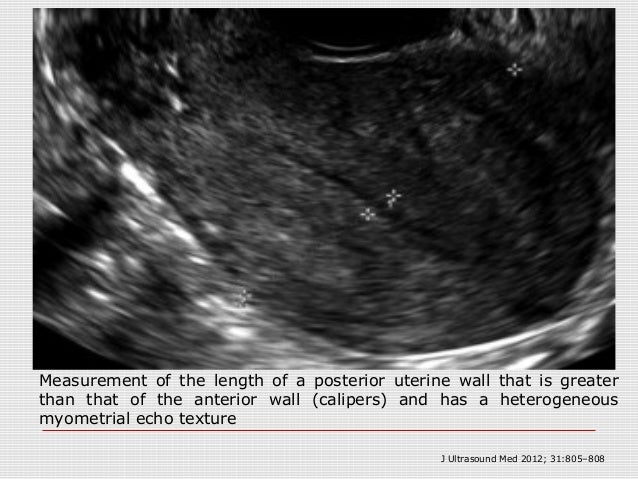



Sonography Of Adenomyosis




Sagittal View Of The Uterus On Trans Vaginal Ultrasound A Bulky Download Scientific Diagram



Www Aium Org Misc Soundjudgment6 Pdf




Ultrasound Characteristics Of Endometrial Cancer As Defined By International Endometrial Tumor Analysis Ieta Consensus Nomenclature Prospective Multicenter Study Epstein 18 Ultrasound In Obstetrics Amp Gynecology Wiley Online Library




Role Of Transvaginal Sonography And Magnetic Resonance Imaging In The Diagnosis Of Uterine Adenomyosis Fertility And Sterility



Q Tbn And9gcqgiazvdncyeycr Vpzzfvtzwzja8iisrxbr2jscdcm8pq Eitf Usqp Cau



The Normal Uterus




What Are The Most Reliable Signs For The Radiologic Diagnosis Of Uterine Adenomyosis An Ultrasound And Mri Prospective Sciencedirect




Imaging The Endometrium A Pictorial Essay Sciencedirect
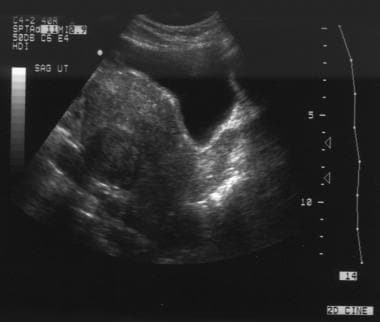



Uterine Leiomyoma Fibroid Imaging Overview Radiography Computed Tomography
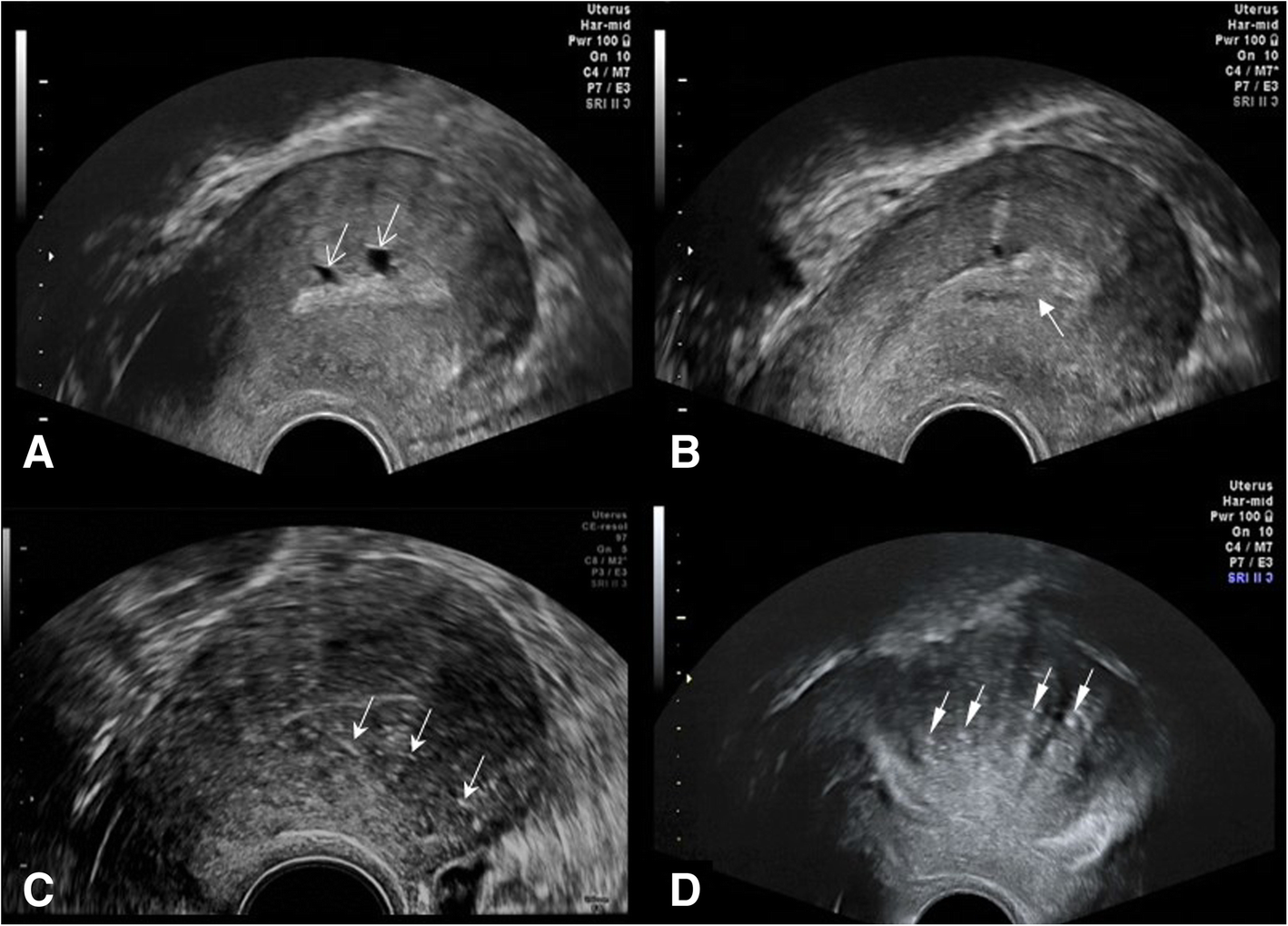



Management Of Uterine Adenomyosis Current Trends And Uterine Artery Embolization As A Potential Alternative To Hysterectomy Insights Into Imaging Full Text




How To Diagnose Adenomyosis Why Are We Missing It Sydney Fibroid Clinic
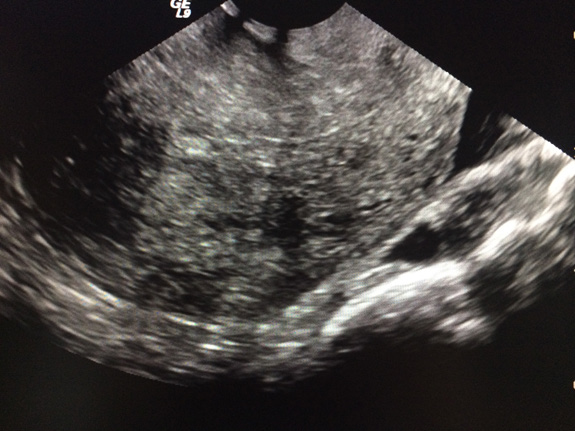



Abdominal Pain In Nonpregnant Female Patients 14 04 06 Ahc Media Continuing Medical Education Publishing



Www Bmus Org Static Uploads Resources Uterus Endometrium Common Uncommon Pathologies Bmus York Pdf



Www Dsjuog Com Doi Dsjuog Pdf 10 5005 Jp Journals 1506




Jaypeedigital Ebook Reader



Adenomyosis Glowm




The Endometrial Echo Revisited Have We Created A Monster American Journal Of Obstetrics Gynecology




Pelvic Pain Overlooked And Underdiagnosed Gynecologic Conditions Radiographics



Www Bmus Org Static Uploads Resources Uterus Endometrium Common Uncommon Pathologies Bmus York Pdf
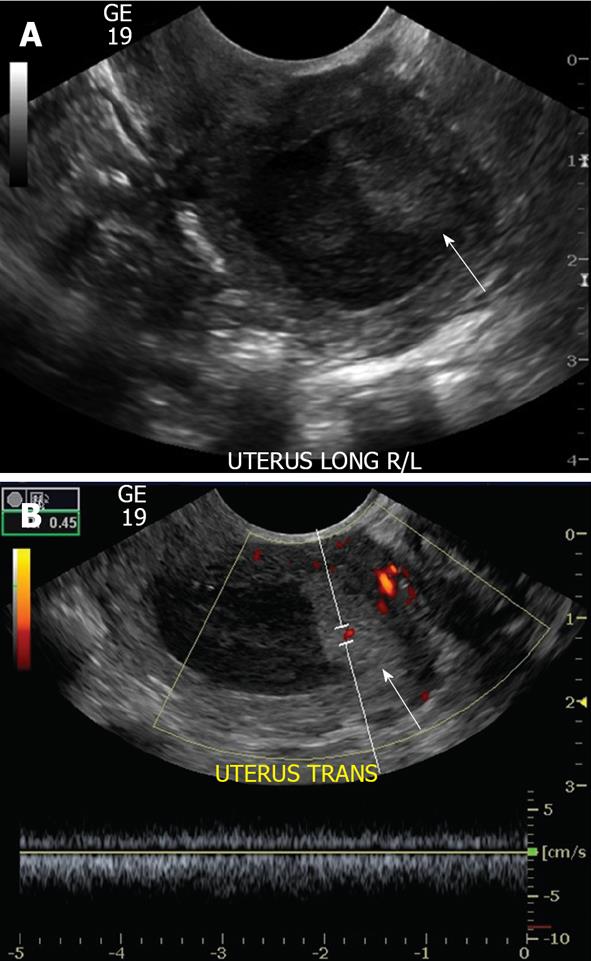



Sonohysterography Principles Technique And Role In Diagnosis Of Endometrial Pathology




Transvaginal Ultrasound Of A Normal Uterus 5 Days Postpartum Transverse Image Shows Echogenic Foci In The Endometri Transvaginal Ultrasound Uterus Image Shows




Dr Aimee Maceda On Adenomyosis Progressive Radiology




Venetian Blind Shadowing On Ultrasound Semantic Scholar



Q Tbn And9gcq4n9kjisge1c2im3e Dttnlw8eipza2kkfxe6rmcfb2il5dfe6 Usqp Cau
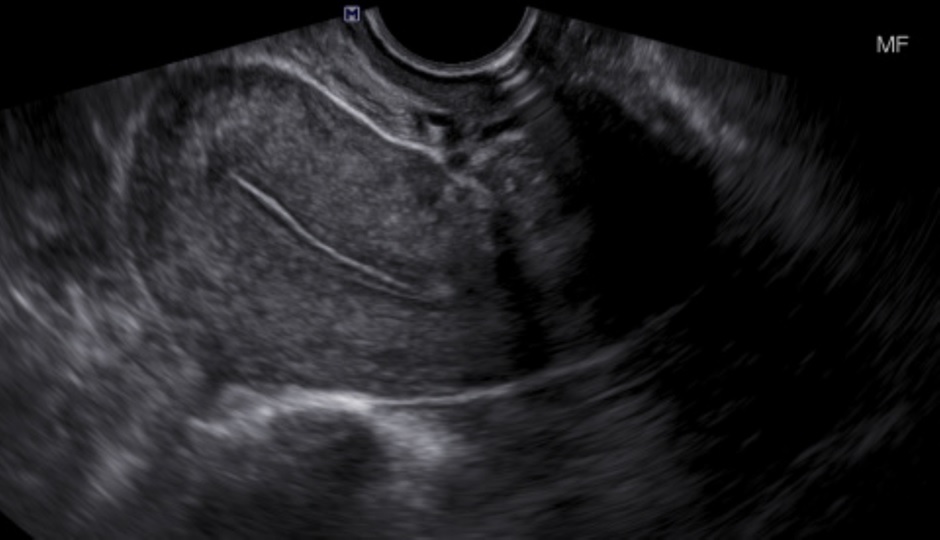



Uterine Imaging Article




Radiological Category Genitourinary Principal Modality 1 Ultrasound Principal
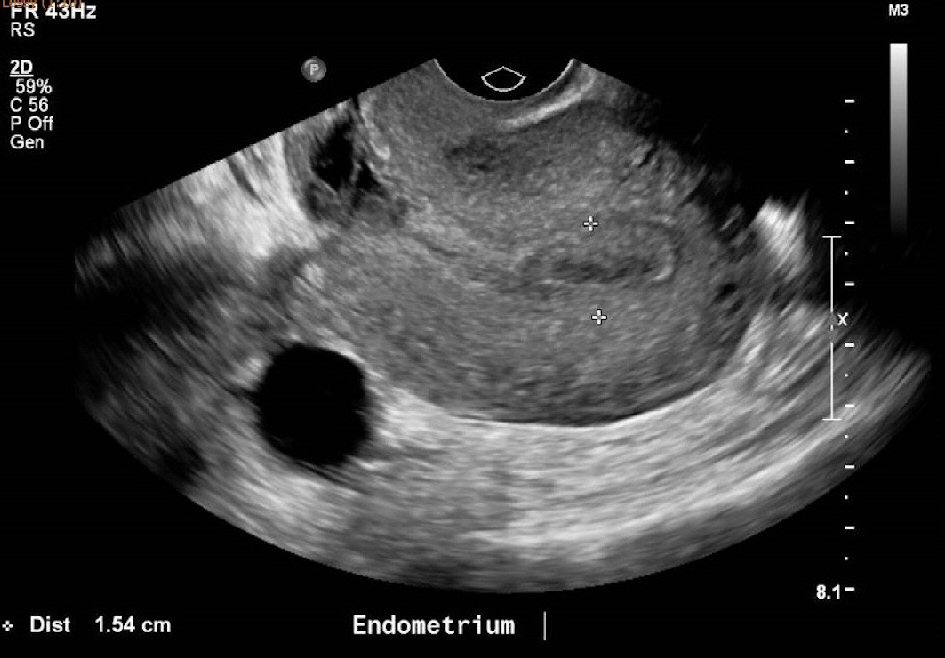



Endometrial Hyperplasia As A Cause Of Secondary Postpartum Hemorrhage In A Post Caesarean Section Patient Goh Journal Of Medical Cases




Retained Products Of Conception An Atypical Presentation Diagnosed Immediately With Bedside Emergency Ultrasound



Journals Sagepub Com Doi Pdf 10 1177




Ultrasound Scans Revealed A Large Heterogeneous Mass Occupying The Download Scientific Diagram



Academic Oup Com Humupd Article Pdf 4 4 337 Pdf




Adenomyosis Chapter 16 Ultrasonography In Reproductive Medicine And Infertility




A Woman With Urinary Incontinence Nejm Resident 360 Meta Property Twitter Image Content Resident360files Nejm Org Image Upload C Fit F Auto H 1 W 1 V U8buf4o8mgdxgmfcczjk Png Meta Property Og Image Content




The Assessment Diagnosis And Causes Of Endometrial Cancer Empowered Women S Health



When Would You Suspect Fibroid Uterus




Association Of 2d And 3d Transvaginal Ultrasound Findings With Adenomyosis In Symptomatic Women Of Reproductive Age A Prospective Study Clinics
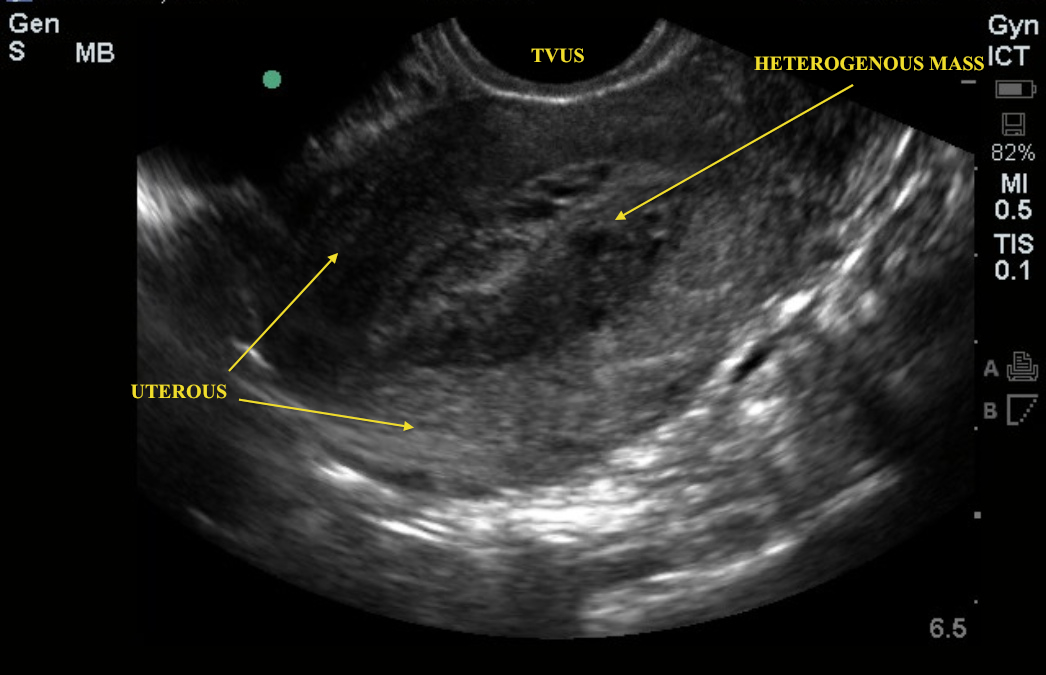



Passing Clots Emory School Of Medicine




Endometrial Hyperplasia Radiology Reference Article Radiopaedia Org
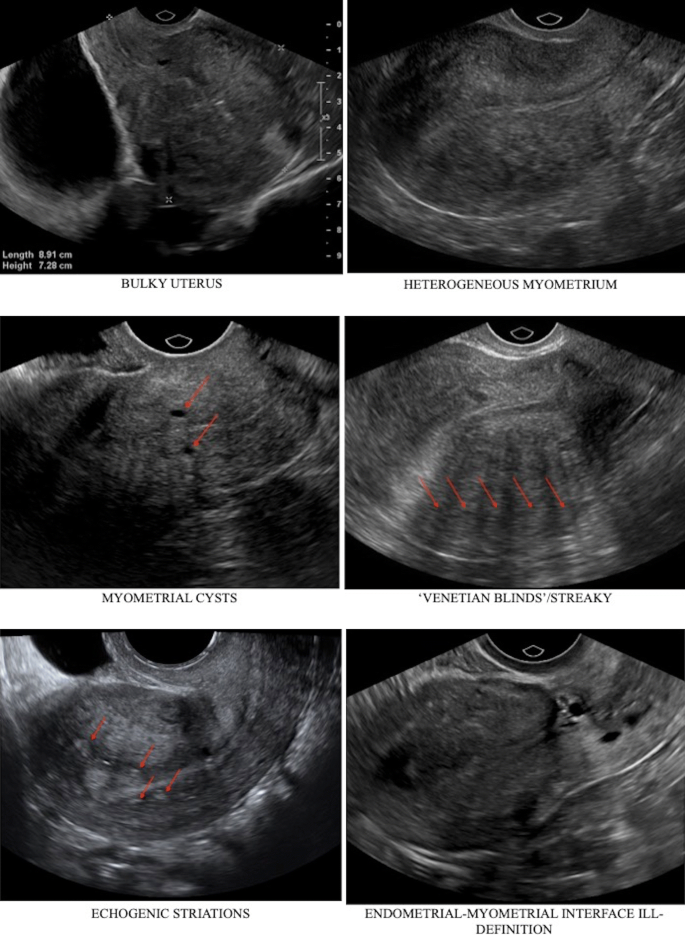



Accuracy Of Findings In The Diagnosis Of Uterine Adenomyosis On Ultrasound Springerlink




Ultrasound Evaluation Of Myometrium Obgyn Key
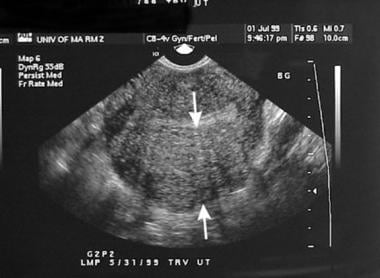



Adenomyosis Imaging Practice Essentials Magnetic Resonance Imaging Ultrasonography




Adenomyosis Adenomyosis And Pregnancy Ivf1
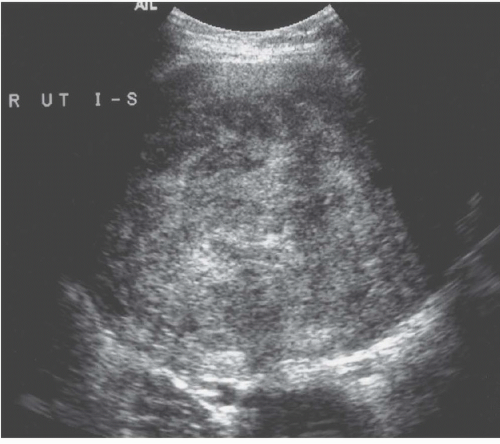



Diseases Of The Uterus Radiology Key




Adenomyosis Collection Of Ultrasound Images




Pelvic Pain Overlooked And Underdiagnosed Gynecologic Conditions Radiographics
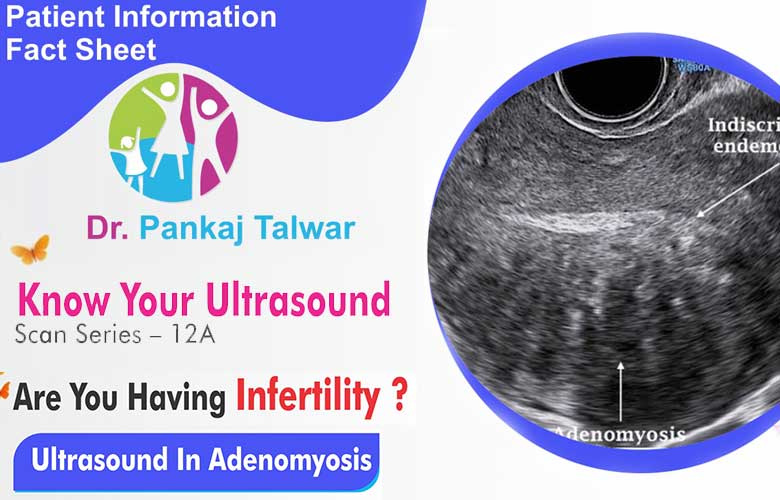



Ultrasound In Adenomyosis Fertility Treatment Center Delhi Ncr




Ultrasound Evaluation Of Myometrium Obgyn Key
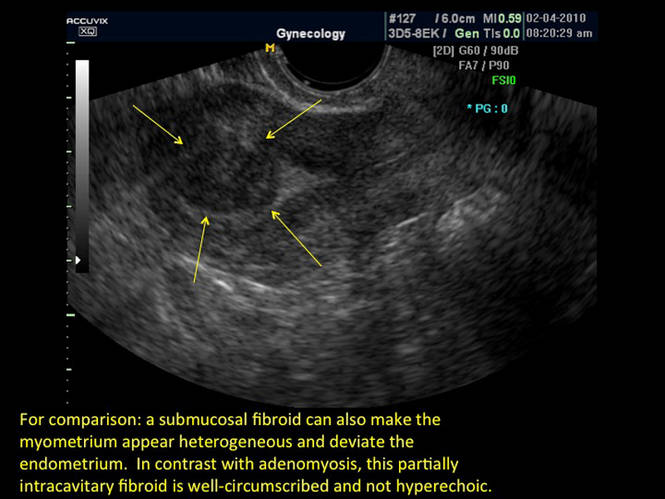



Uterine Adenomyosis Noninvasive Diagnosis Mdedge Obgyn
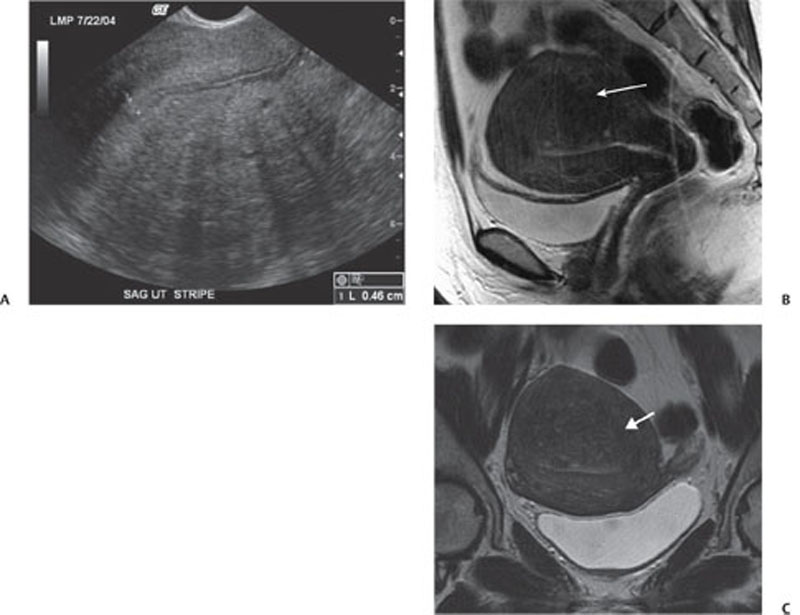



129 Adenomyosis Radiology Key



Www Aium Org Misc Soundjudgment6 Pdf




Adenomyosis A Sonographic Diagnosis Radiographics




Endometrial Thickness Predicts Intrauterine Pregnancy In Patients With Pregnancy Of Unknown Location Moschos 08 Ultrasound In Obstetrics Amp Gynecology Wiley Online Library




Imaging The Endometrium Disease And Normal Variants Radiographics




Figure 1 A Case Of Adenosarcoma Of The Uterus




Imaging The Endometrium A Pictorial Essay Sciencedirect



Academic Oup Com Humupd Article Pdf 4 4 337 Pdf



1




View Image



Www Glowm Com Pdf Ultrasound In Obstetrics And Gynecology Chapter11 Pdf




What Are The Most Reliable Signs For The Radiologic Diagnosis Of Uterine Adenomyosis An Ultrasound And Mri Prospective Sciencedirect



When Would You Suspect Fibroid Uterus




Adenomyosis Radiology Case Radiopaedia Org




Retained Products Of Conception An Atypical Presentation Diagnosed Immediately With Bedside Emergency Ultrasound
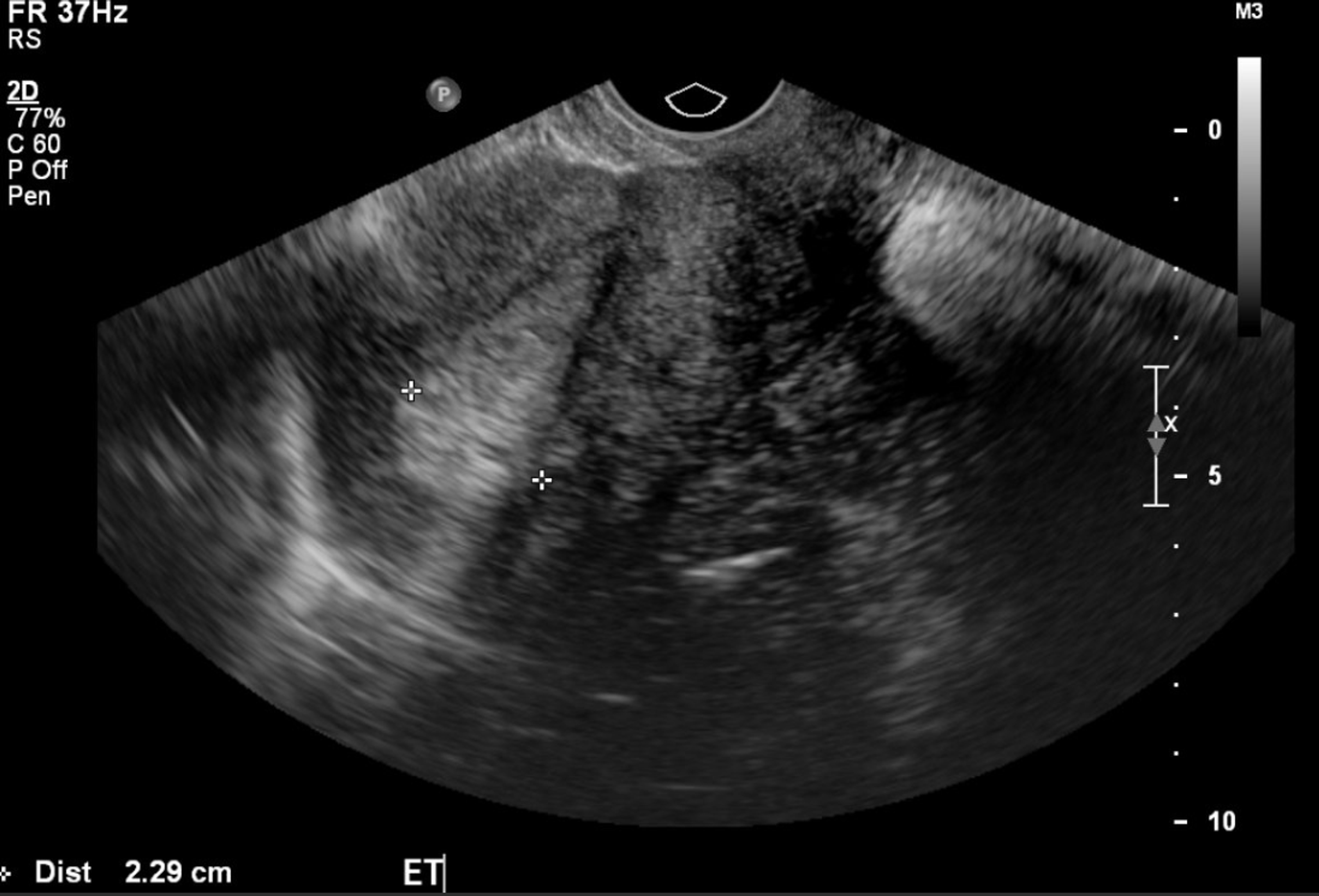



Cureus Ciliated Cell Variant Of Endometrial Carcinoma In An Adenomyoma In Uterus


